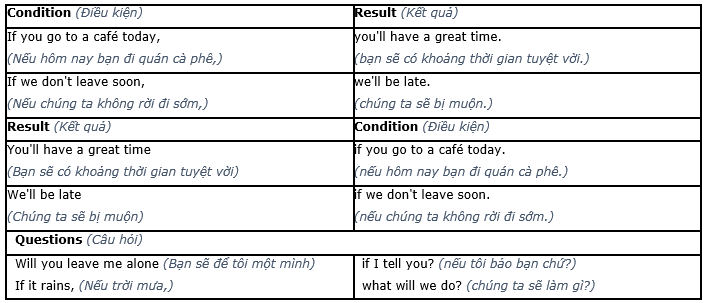Study the examples in the Learn this! box below and complete the rules with the correct verbs and tenses.
LEARN THIS! The first conditional a We form the first conditional with the 1__________in the if clause and 2__________ / won't + infinitive without to in the main clause. If I pass all my exams, I'll go to university. b We can make predictions with the first conditional. You'll cut yourself if you aren't careful with that knife. c We can use may / 3__________ / could in the main clause to make the prediction less certain. You might cut yourself if you aren't careful. |




1. present simple
2. will
3. might